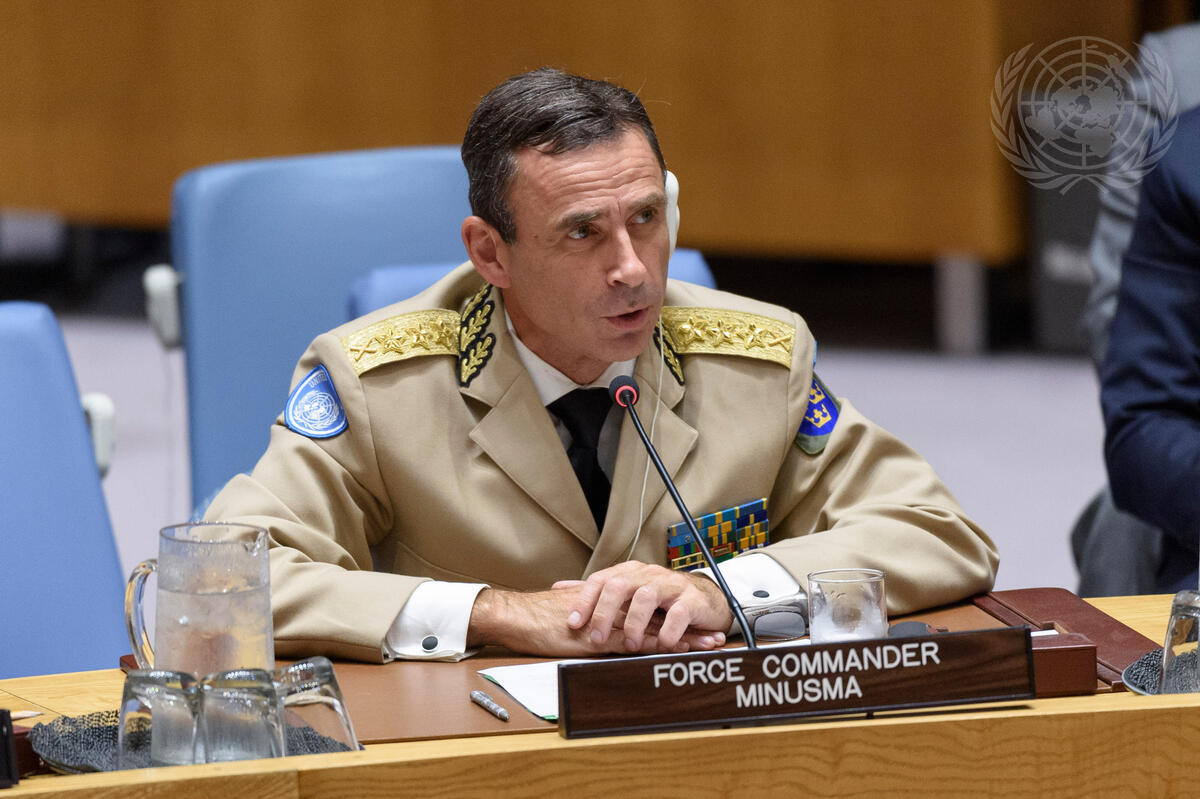By ADF
With almost half of all United Nations peacekeeping operations located in Africa, the continent has been the site of many successes, challenges and hard-earned lessons.
In order to share some of these lessons, 10 senior leaders collaborated on a newly published book, “Military Diplomacy: The Experience and Leadership of Former United Nations Force Commanders in the Service of Peace.”
With an eye on advancing Africa’s regional security architecture, former U.N. force commanders shared their experiences and takeaways in a panel discussion hosted by the Africa Center for Strategic Studies (ACSS) and the Swedish Defense University on October 22.
Nigerian Maj. Gen. (Ret.) Salihu Zaway Uba was the eighth and final force commander for the U.N. Mission in Liberia (UNMIL). From the beginning of his term in 2015 until the closure of the mission in 2018, he oversaw the drawdown of troops in what is widely considered one of the most successful peacekeeping missions in U.N. history.
“We had a total of about 15,000 military and close to 1,200 police, several diplomats, political advisors and workers,” he said during the event. “We worked with all these groups of people independently and jointly. We would collaborate with them on several issues.”
He described the complexities of overseeing UNMIL’s handover of security responsibilities to Liberian forces, which took place in 2016, and preparing for national elections in 2017. Both tasks were accomplished during an accelerated drawdown of troops to a residual force of 1,240 Soldiers and 606 police.
“There was reduction in the troops on the ground, but there was no corresponding reduction in the tasks given to the mission,” he said. “We had less boots, but we had more tasks.”
Operational planning was key.
“We had to make sure we were virtually everywhere,” Uba explained, “particularly in the office of the joint mission analysis center, so that we should be able to grab any situation before it comes and plan for it.”
Swedish Lt. Gen. (Ret.) Dennis Gyllensporre was force commander of the U.N.’s Multidimensional Integrated Stabilization Mission in Mali (MINUSMA) from August 2018 to 2021.
In charge of more than 13,000 Soldiers, he led the implementation of the peace agreement among three parties — the Malian military junta’s transitional government, the opposition group la Platforme, and a coalition of mostly Tuareg rebels called la Coordination des movements de l’Azawad.
Gyllensporre also dealt with myriad political factors, including diminishing support from the host country’s leaders and disinformation campaigns targeting peacekeeping operations. His biggest challenge and most important takeaway, which now is his academic pursuit as a visiting fellow at Oxford University, was the role that military diplomacy plays in complex missions.
“There is no kind of single approach to mediation,” he said. “There are different tools you can and should use as a military diplomat. I tried to shed some light on what things worked and did not work for me when I dealt with conflicts and when we had violent clashes between the different parties.”

While Malians looked to MINUSMA to take on difficult tasks such as counterterrorism operations, Gyllensporre also was leading the enforcement of a fragile peace deal.
“As force commander I had a formal capacity for supervising the peace accord,” he said. “I chaired meetings with the signatory groups and representatives of the government to advance the peace accord. I found that there were a lot of synergies here, because I had at my disposal 13,000 troops to verify the commitments that we made around the table and in some cases to deter an outbreak of violence. I think it was a good combination.”
Another speaker and co-author of the book, Australian Maj. Gen. Cheryl Pearce, shared her perspective as a former force commander and now acting military advisor to the U.N. A critical aspect of being a force commander is fostering a mindset of integrating teams, she said.
“Most of the time I’m in a suit,” she said. “I don’t think about myself as being military. I have a particular skill set. I have a career filled with schools, knowledge, attitude. But actually I think about it in a team approach. How do I support the head of peacekeeping, the head of operations and support missions? So that coordination is really key and that integrated mindset in everything we do, it shows in the mission and also in the headquarters.”
As a female force commander, Pearce took lessons from her career to forge a style of leadership that leans heavily on transparency, inclusivity and respect for diverse backgrounds.
“In a multinational and a multidimensional mission, you’ve got a number of member states and troop-contributing countries, and they all come from a diverse background of education, culture, belief, gender and languages,” she said. “It’s a human dimension of leadership that really brings the teams together.”
ADF is a professional military magazine published quarterly by U.S. Africa Command to provide an international forum for African security professionals





